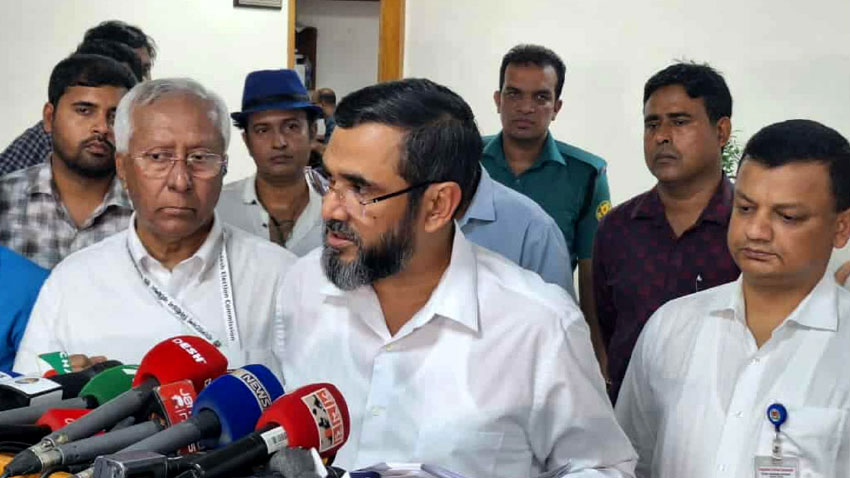Online Repor
Election Commissioner (EC) Brig Gen (Retd) Abul Fazl Md Sanaullah announced on Wednesday that fugitive convicts will not be allowed to contest elections in the country.
Speaking to reporters at Election Commission Secretariat, Sanaullah said, “Those declared fugitives by court cannot participate in elections.”
He informed that the draft amendment of the Representation of the People Order (RPO) has been finalized and sent to the Law Ministry for vetting.
Under the proposed reforms, district election officers, not deputy commissioners, will prepare polling station lists. Candidates will be allowed to spend a maximum of Tk 10 per voter or Tk 2.5 million per constituency. Nomination papers must be submitted physically, with no online option.
The amendment also raises the security deposit for parliamentary candidates from Tk 20,000 to Tk 50,000. If an elected MP is later found to have submitted false information in affidavits, their membership will be cancelled.
In case of a tie, fresh voting will be held instead of deciding by lottery. Election posters are banned, while violations of the electoral code of conduct through social media or artificial intelligence will not be permitted.
The definition of law enforcement has been broadened to include the army, navy, and air force.
Talking about ‘No Vote’ option, the election commissioner said if there is a single candidate in a constituency must contest with ‘No Vote’ option for a single time.
According to the Article 19 of the draft RPO, if there is only one candidate after the withdrawal of candidacy, the election shall be held between the sole candidate and the ‘No Vote’ option.
If the number of ‘No Vote’ exceeds the number of votes received by the contesting candidate, a fresh election shall be held in that constituency by announcing a fresh schedule. But there shall be no ‘No Vote’ option in the subsequent election and if there is also a single candidate, then he shall be declared elected.
About the authority of the presidential officer, Sanaullah said the draft law enhanced the authority of a presiding officer to stop the polling of a polling station. “The presiding officer will be all-in-all over the polling of a polling station,” he said.
As per the draft law a presiding officer could stop the polling, if it is interrupted beyond control, or if ballot boxes are unlawfully removed, destroyed, lost or tampered to such extent that the result of the poll at the polling station cannot be ascertained.
The current RPO does not permit a presiding officer to stop polling before seeking help from law enforcement agencies and failing to restore order.
The draft law will turn into a law if the council of advisers approves it and then the President promulgates an ordinance following the vetting by the law ministry.
The Election Commission has been reviewing electoral laws for the upcoming 13th parliamentary elections for over a month. Once vetted by the Law Ministry, the proposed amendments will go to the Advisory Council for approval, followed by a presidential ordinance. The code of conduct will be published in the gazette after ministry approval


